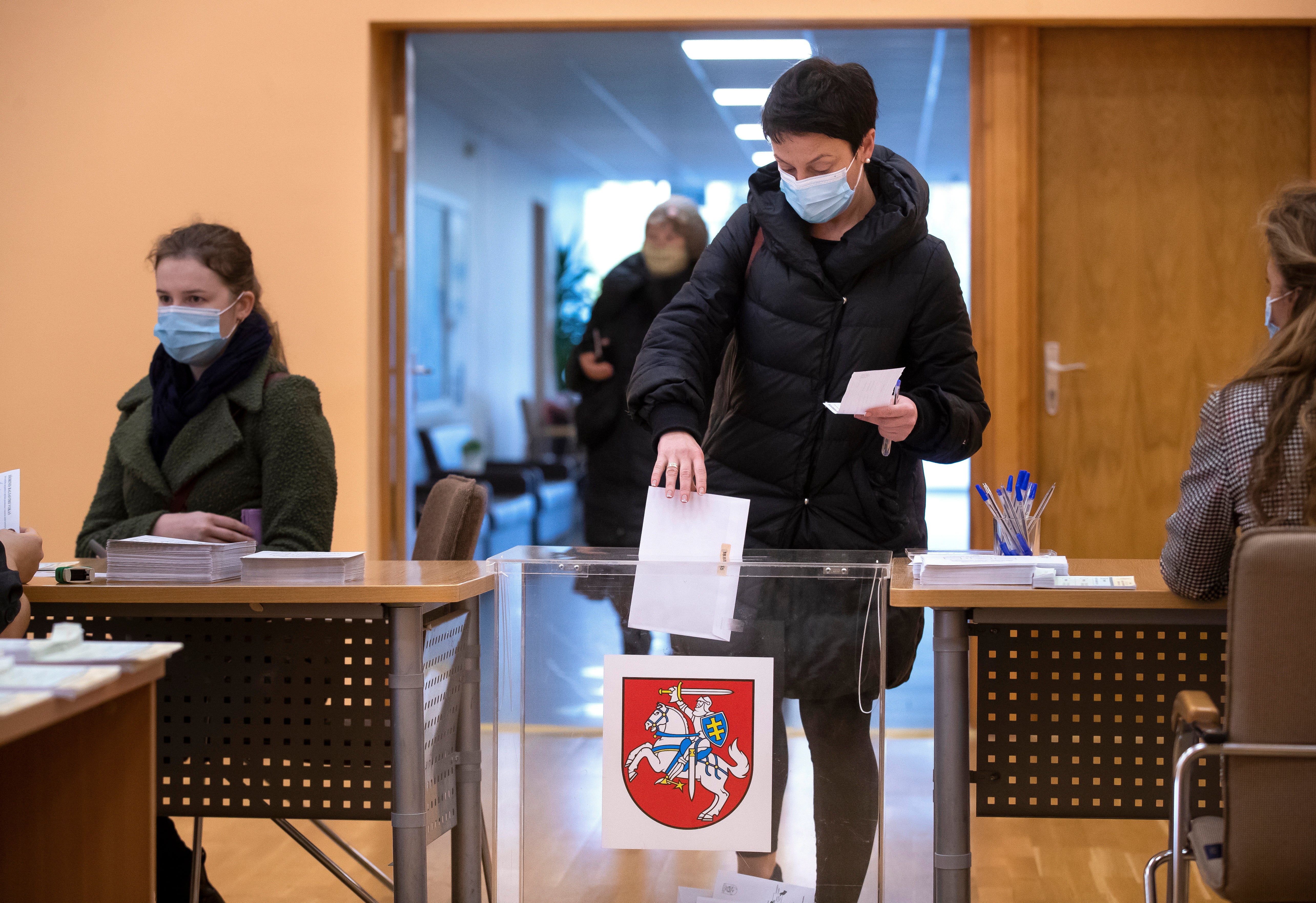Virus, economy top concerns as Lithuanians vote in runoff
The coronavirus pandemic is the main domestic issue as Lithuania holds a parliamentary runoff election Sunday, and the winner will have to tackle a rapidly deteriorating public health sector and high unemployment

Your support helps us to tell the story
From reproductive rights to climate change to Big Tech, The Independent is on the ground when the story is developing. Whether it's investigating the financials of Elon Musk's pro-Trump PAC or producing our latest documentary, 'The A Word', which shines a light on the American women fighting for reproductive rights, we know how important it is to parse out the facts from the messaging.
At such a critical moment in US history, we need reporters on the ground. Your donation allows us to keep sending journalists to speak to both sides of the story.
The Independent is trusted by Americans across the entire political spectrum. And unlike many other quality news outlets, we choose not to lock Americans out of our reporting and analysis with paywalls. We believe quality journalism should be available to everyone, paid for by those who can afford it.
Your support makes all the difference.The coronavirus pandemic is the main domestic issue as Lithuania holds a parliamentary runoff election Sunday, and the winner will have to tackle a rapidly deteriorating public health sector and high unemployment.
The election is widely expected to bring about a change in the southernmost Baltic nation, which has been governed by a center-left coalition for four years. In the first round of this month's voting, three center-right opposition parties finished with a combined lead.
In the second round, 68 of the 141 seats in Lithuania's legislative assembly, the Seimas, are up for grabs. The other seats were allotted after the Oct. 11 first round of voting.
More than 7% of Lithuania’s 2.5 million voters have already cast early ballots for the runoff, according to election authorities who set up special drive-in polling stations because of the pandemic.
Lithuania fared comparatively well during the first wave of the pandemic, but like elsewhere in Europe this fall, the nation of 3 million people has reported worrying spikes in recent weeks. Overall, it has seen over 9,100 infections and 126 reported deaths.
After weeks of hesitation, the Lithuanian government imposed a quarantine in 12 of 60 districts that starts on Monday. Opposition lawmakers have criticized the government for not doing enough to stabilize the latest outbreak.
The economic impact of the pandemic has hit Lithuania hard: it's unemployment rate was over 14% in September compared to 9% in February. The outgoing parliament had drafted a 2021 budget with a 4-billion euro ($4.7 billion) deficit.
The election's first round resulted in the conservative Homeland Union party winning 23 seats, or 24.8% of the vote, while the ruling Farmers and Greens party only grabbed 16 seats, or 17.5%.
“If the conservatives are successful on Sunday, they would very likely try to form a new ruling coalition with other two center-right partners — the Freedom Party and the Liberal movement ” Vilnius University political scientist Tomas Janeliunas told The Associated Press. “Yet this would be a rather fragile majority.”
Some 54 Homeland Union candidates made it into the runoff, while the Farmers and Greens have 32 contenders. Together, the Freedom Party and the Liberal movement have 21 candidates. Two other center-left parties that have crossed the 5% support threshold into parliament could join the Farmers and Greens in a new coalition but they have few candidates in the runoff.
Lithuania, a member of the European Union and NATO, has kept strong democratic traditions and sustainable economic growth since declaring independence from the Soviet Union in 1990. It has also played a major diplomatic role as the protests in Belarus, its southern neighbor, unfold against that nation’s authoritarian leader.